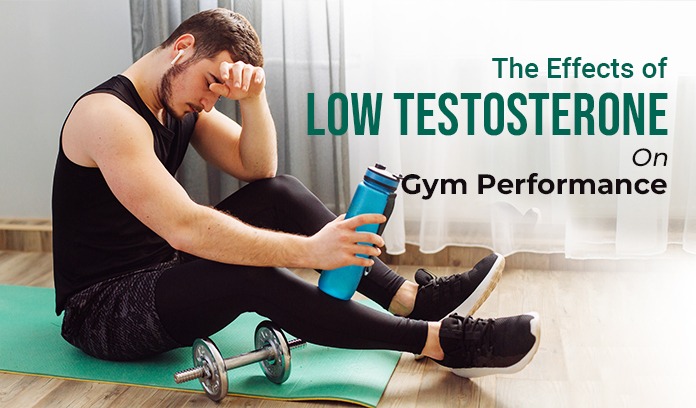It’s not called the masculine hormone for nothing.
Your gains elevate with testosterone.
It is a key hormone that plays a crucial role in muscle growth, strength development, and overall gym performance.
Sadly, and for various physiological reasons, some individuals may experience low testosterone levels, which can have a significant impact on their athletic abilities.
In this blog post, we will explore the side effects of low testosterone on gym performance and discuss how it can affect strength, muscle growth, endurance, and recovery. Let’s dive into the world of low testosterone and its impact on gym performance.
#1 Decreased Muscle Mass and Strength:
Testosterone is an anabolic hormone that promotes muscle protein synthesis, leading to muscle growth and increased strength.
When testosterone levels are low, individuals may experience a decline in muscle mass and strength, making it more challenging to achieve desired gains in the gym.
- Reduced muscle protein synthesis: Low testosterone levels can impair the body’s ability to efficiently synthesize proteins, hindering muscle repair and growth.
- Decreased muscle fiber size: Testosterone is known to influence muscle fiber hypertrophy, and low levels can result in reduced muscle fiber size and compromised strength.
#2 Impaired Endurance and Fatigue:
Low testosterone can also affect endurance and overall energy levels during workouts.
Testosterone plays a role in red blood cell production and oxygen-carrying capacity, both of which are vital for sustaining endurance activities.
- Decreased red blood cell production: Low testosterone levels can contribute to reduced red blood cell production, resulting in decreased oxygen delivery to working muscles and increased fatigue.
- Lower energy levels: Testosterone influences energy levels and motivation, and individuals with low testosterone may experience reduced drive and overall energy during workouts.
#3 Slower Recovery and Increased Risk of Injury:
Testosterone plays a crucial role in the recovery process by promoting protein synthesis, reducing inflammation, and enhancing tissue repair. When testosterone levels are low, individuals may experience delayed recovery and increased susceptibility to injuries.
- Impaired protein synthesis: Low testosterone levels can hinder the body’s ability to repair damaged muscle tissues efficiently, leading to prolonged recovery times.
- Reduced collagen synthesis: Testosterone influences collagen production, a crucial component of connective tissues. Low levels can compromise tissue strength and increase the risk of injury.
#4 Changes in Body Composition:
Low testosterone levels can contribute to unfavorable changes in body composition, including increased body fat and decreased lean muscle mass. These changes can negatively impact overall gym performance and aesthetics.
- Increased body fat: Testosterone plays a role in regulating fat metabolism, and low levels can contribute to increased fat storage and reduced fat utilization.
- Decreased lean muscle mass: Low testosterone levels can lead to muscle loss or hinder muscle growth, resulting in a decrease in overall lean muscle mass.
Conclusion:
Low testosterone levels can have a significant impact on gym performance, affecting muscle mass, strength, endurance, recovery, and body composition. Recognizing the effects of low testosterone is crucial for individuals seeking to optimize their fitness journey.
If you suspect low testosterone levels, it’s important to consult with a healthcare professional who can conduct appropriate tests and provide guidance on potential solutions, such as hormone replacement therapy or lifestyle modifications.
By addressing hormonal imbalances and seeking appropriate interventions, individuals can work towards optimizing their gym performance and achieving their fitness goals.

